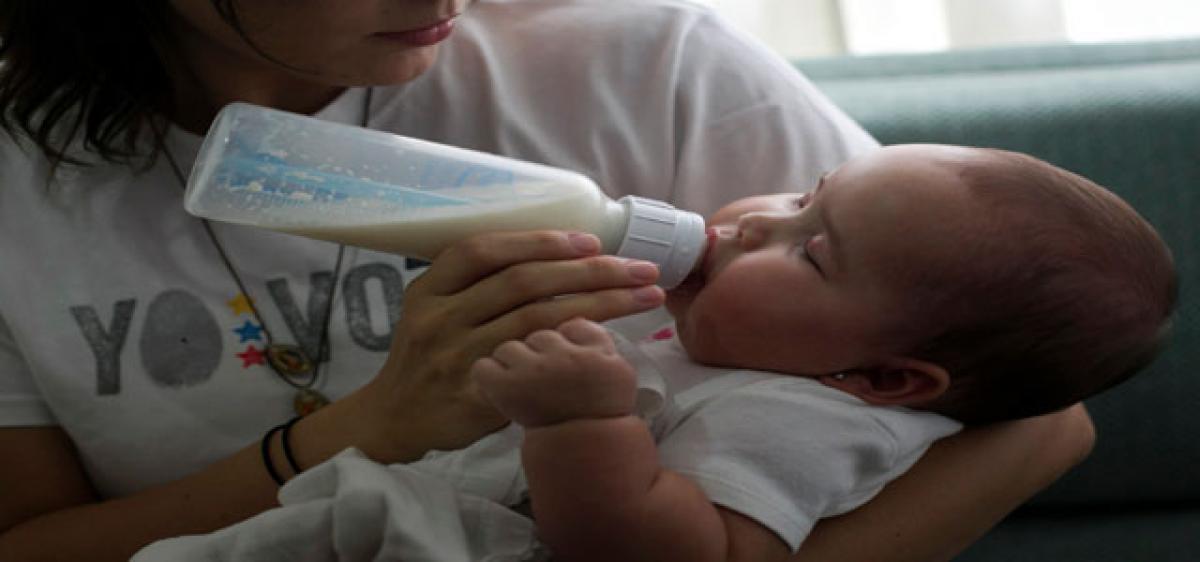New mothers increasingly moving toward bottle-feeding: Study

An increasing number of new mothers are turning towards using expressed breast milk either pumped or expressed by hand instead of directly breast feeding their babies, a research has revealed.
An increasing number of new mothers are turning towards using expressed breast milk either pumped or expressed by hand instead of directly breast feeding their babies, a research has revealed. Breast feeding has previously been deemed important for the nutrition, immunology, growth and development of infants and toddlers.
"Breast feeding is the unequalled method for feeding infants. Anything that contributes to shortening the recommended six months of exclusive breast feeding is a concern," said Marie Tarrant, Director of nursing at the University of British Columbia (UBC) Okanagan Campus in Canada.
The study showed that mothers who use expressed breast milk typically shift their babies to infant formula feeding sooner than their breast feeding peers, a trend that may impact the health of our next generation.
Although, expressed breast-milk feeding provides greater benefits than infant formula, bottle-feeding may increase the risk of respiratory issues, asthma, rapid weight gain and oral diseases, Tarrant rued.
Supplementation with infant formula, lack of previous breast-milk feeding experience, having a planned caesarean section delivery and returning to work postpartum were some of the factors associated with higher rate of exclusive expressed breast-milk feeding, the researchers said.
For the study, Tarrant along with co-author Dorothy Bai from the University of Hong Kong, examined the infant feeding practices of more than 2,000 mothers living in Hong Kong.
They found that during a five-year stretch, mothers moved away from directly breast feeding their infants to using expressed breast milk, which is usually delivered via a bottle.
Providing greater access to professional breast feeding support to new mothers, particularly in the first 24 hours after birth, could ensure that new infants receive the optimal nutrition, Tarrant suggested. The study was published in the journal Public Health Nutrition.

















